
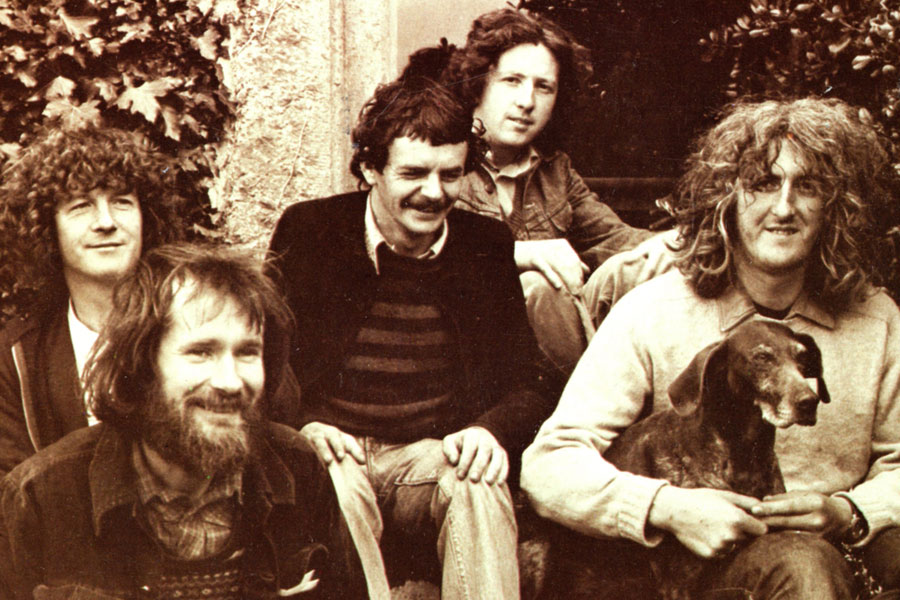
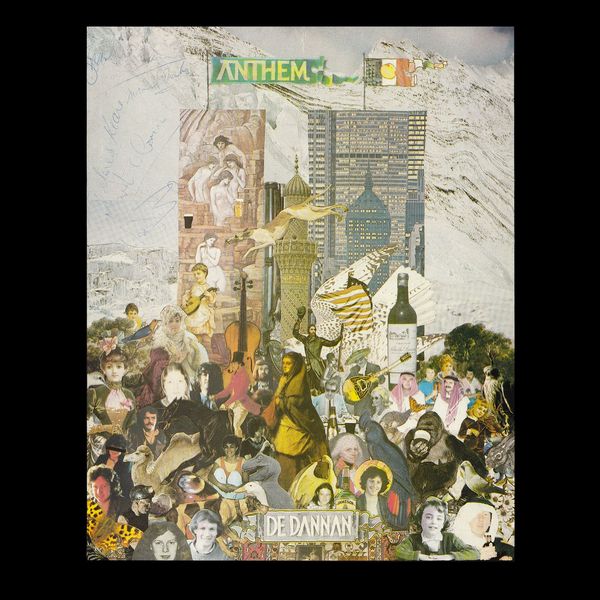 |
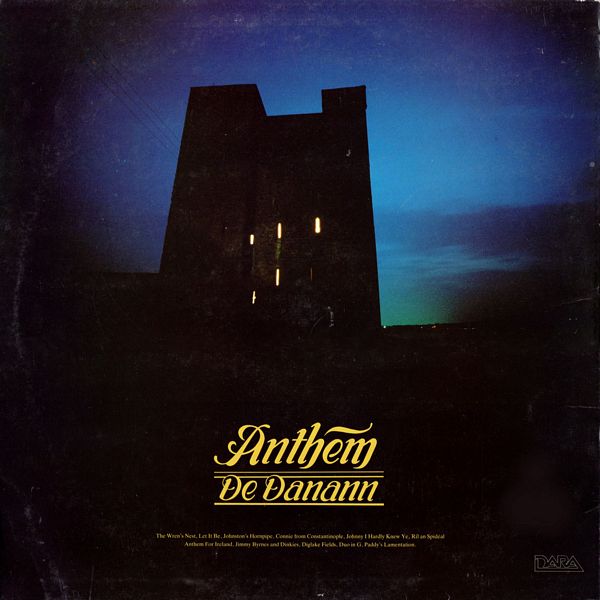
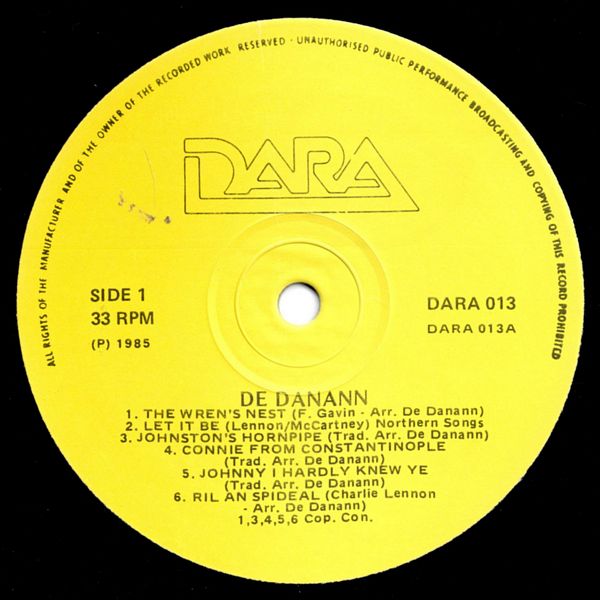
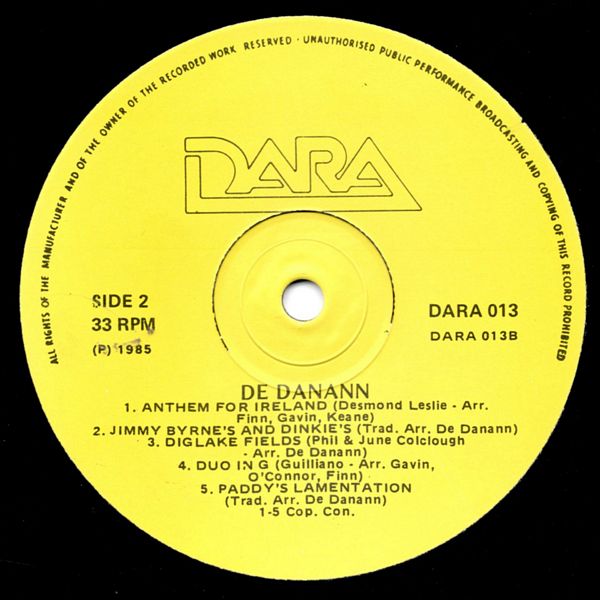
|
Sleeve Notes
JOHNNY I HARDLY KNEW YE
When goin' the road to sweet Athy, Haroo, haroo
When goin' the road to sweet Athy, Haroo, haroo
When goin' the road to sweet Athy a stick in me hand and a drop in me eye
A doleful damsel I heard cry "Johnny I hardly knew ye"
Chorus:
With your guns and drums and drums and guns haroo, haroo
With your guns and drums and drums and guns haroo, haroo
With your guns and drums and drums and guns the enemy nearly slew ye
O darlin' dear you look so queer Johnny I hardly knew ye.
Where are those eyes with which you smiled, haroo, haroo
Where are those eyes with which you smiled, haroo, haroo
Where are those eyes with which you smiled when my poor heart you first beguiled
Why did you go leave me and the child Johnny I hardly knew ye.
Where are those legs with which you ran, haroo, haroo
Where are those legs with which you ran, haroo, haroo
Where are those legs with which you ran when you went to fight them with your gun
Indeed your dancin' days are done Johnny I hardly knew ye.
Repeat Chorus
You haven't an arm, you haven't a leg, haroo, haroo
You haven't an arm, you haven't a leg, haroo, haroo
You haven't an arm, you haven't a leg, You're an eyeless, noseless, chickenless egg
You'll have to be put with a bowl to beg, Johnny I hardly knew ye.
I'm happy for to see you home, haroo, haroo,
I'm happy for to see you home, haroo, haroo
I 'm happy for to see you home, back from the island of Salom
So low in flesh, so high in bone Johnny I hardly knew ye.
Repeat Chorus
To my mind one of the most poignant anti-war songs. It tells the story of the woman who's left to pick up the pieces. — M.B.
ANTHEM FOR IRELAND
Oh Land of love
We bless thee gentle mother
Oh Land of light
Fair Jewel of the sea
Oh land of joy
Where brother shall meet brother
And all thy souls
Shall dwell in harmony
And when the clouds of torment and of sorrow
Flee with the dark at rising of the sun
Hand shall clasp hand in happiness tomorrow
And we shall live in peace until his work is done.
All wounds shall heal
Unkindness be forgiven
All hurts forgot as ends our darkest night
No more shall we by war or strife be riven
All Ireland's children face the future bright
One God shall reign in hearts His flame has lighted
And He shall lead our people to the sun
One heart, one soul, one land by love united
There we shall live in peace until his work be done.
The Anthem was written by Desmond Leslie of Glaslough Castle, Glaslough, Co. Monaghan. The lyrics to the tune of the Derry Air express hope for the future of all the people of Ireland.
DIGLAKE FIELDS
The sun comes up on Diglake fields, it wakes the milk-white hare
The lady tells the stable boy to saddle up the mare
The hands that hold the reins are cold, the spurs are polished steel
She'll take the mare without a care to race on Diglake fields.
The sun goes down across the town and miners start to rise
And from their beds with sleepy heads to leave their anxious wives
Off they troop with ne'er a look to get the coal below
So hello night, farewell daylight, be careful how you go.
The horses hooves on Diglake fields throw water in the air
Sometimes she's lost among the mist that falls around the moor
At her command is all this land and all the coal that's there
In morning sun and at full run she saw the milk-white hare.
No sun will shine down in the mine a 1,000 feet below
No hares will run and days don't come where winds refuse to blow
And by the cold dark river's run, they'll stream in from the sea
And men down there who work with care see water in their dreams.
No fear of fox or of greyhound, the hare can beat them all
She can outrun the hunters gun and miners dogs galore
But now this lady races on to cut this wild hare down
She dearly wants the milk-white fur to trim her dancing gown.
The coal is cleared down in the mine cut by the morning shift
The cutters call the firemen in to start another drift
The shots are placed, men take their break, they pass the tea can round
When all retire the shots are fired and 60 men are drowned.
In the night the fire burns bright the band takes up the tune
The dance begins and heads they turn she moves into the room
Her face is flushed her eyes they shine they sparkle from the fire
Her gown is cut above her breast it's trimmed with milk-white fur.
In January 1895 an accident occurred at the Diglake Mine in the English N. Staffordshire Coalfield. The miners were drowned when water from a surface lake burst into the underground workings.
Our song does not attempt to reconstruct the events of the tragedy in accurate detail. Facts are combined with fictional elements in order to try to speak about the universal situation facing all miners and their families.
The White Hare is used as a symbol of freedom. Ladies shall ride thoroughbred mares and miners shall take risks.
P. and J. Colclough.
PADDY'S LAMENTATION
Well its by the hush me boys and shure that's to hold your noise
And listen to poor Paddy's sad narration
I was by hunger pressed and in poverty distressed
So I took a thought I'd leave the Irish nation.
Chorus:
Here's you boys now take my advice
To America I'll have yous not be comin'
There is nothing here but war where the murdering cannons roar
And I wish I was at home in dear old Dublin.
Well I sold me horse and cow, my little pigs and sow
My little plot of land I soon did part with
And me sweetheart Bid McGee I'm afraid I'll never see
For I left her there that morning broken-hearted.
Repeat Chorus
Well meself and a hundred more to America sailed o'er
Our fortunes to be made we were thinkin'
When we got to Yankee land they shoved a gun into our hand
Saying Paddy you must go and fight for Lincoln.
Repeat Chorus
General Meagher to us he said if you get shot or lose your head
Every murdered soul of youse will get a pension
Well meself I lost me leg, they gave me a wooden peg
And be God, this the truth to you I mention.
Repeat Chorus
Well I think meself in luck if I get fed on Indian buck
And old Ireland is the country I delight in
With the devil I do say, it's curse Americay
For I think I've had enough of your hard fighting.
Repeat Chorus
"Paddy's Lamentation" was collected by Edith Sowke from a singer, O. J. Abbott, who learned it from a Mrs. O'Malley in the 1880's. General Thomas Francis Meagher who is mentioned in the song was commander of the Irish Brigade at the Battle of Richmond in the American Civil War.